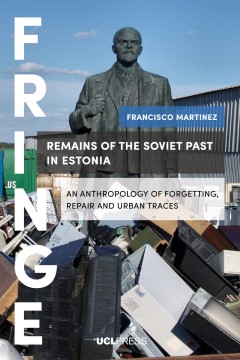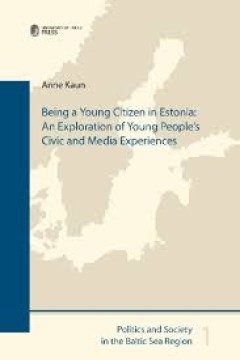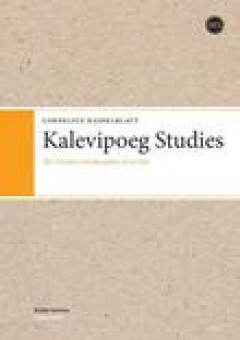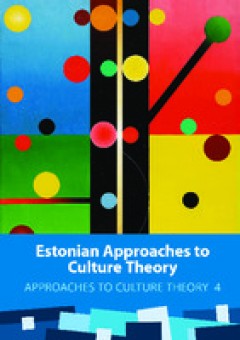Filter by

Remains of the Soviet past in Estonia : an anthropology of forgetting, repair…
What happens to legacies that do not find any continuation? In Estonia, a new generation that does not remember the socialist era and is open to global influences has grown up. As a result, the impact of the Soviet memory in people’s conventional values is losing its effective power, opening new opportunities for repair and revaluation of the past. Francisco Martinez brings together a numb…
- Edition
- -
- ISBN/ISSN
- 9781787353534
- Collation
- xix, 255 p. ill;
- Series Title
- -
- Call Number
- 974.98 REM F

Being a young citizen in Estonia: an exploration of young people's civic and …
The book gives an intriguing insight into how young people in Estonia, twenty years after the establishment of democracy, perceive their own role as citizens. It does so in a theoretical framework that stresses the embeddedness of the civic experiences in a media-dominated environment, thus closely linking civic and media experiences. Based on the analysis of both qualitative interview data and…
- Edition
- -
- ISBN/ISSN
- 9789949322749
- Collation
- 132 pages, 1 unnumbered page ; 24 cm.
- Series Title
- Politics and society in the Baltic Sea Region, 1
- Call Number
- 799.2 KAU b

Kalevipoeg studies : the creation and reception of an epic
"The poem Kalevipoeg, over 19,000 lines in length, was composed by Friedrich Reinhold Kreutzwald (1803–1882) on the basis on folklore material. It was published in an Estonian-German bilingual edition in six instalments between 1857 and 1861; it went on to become the Estonian national epic. This first English-language monograph on the Kalevipoeg sheds light on various aspects of the emergence…
- Edition
- -
- ISBN/ISSN
- 9789522227119
- Collation
- 144 p.
- Series Title
- -
- Call Number
- 894.5451 HAS k

Estonian approaches to culture theory
The fourth volume in the Approaches to Culture Theory series is a contemporary Estonian anthology in culture theory. Most of the authors are members of the research groups of the Centre of Excellence in Cultural Theory: archaeology, cultural communication studies, contemporary cultural studies, ethnology, folkloristics, religious studies, landscape studies, and semiotics. These scholars have re…
- Edition
- -
- ISBN/ISSN
- 9789949326136
- Collation
- 335 pages : illustrations (some color), maps ; 22 cm.
- Series Title
- Approaches to culture theory series, volume 4
- Call Number
- 306.01 LAN e
 Computer Science, Information & General Works
Computer Science, Information & General Works  Philosophy & Psychology
Philosophy & Psychology  Religion
Religion  Social Sciences
Social Sciences  Language
Language  Pure Science
Pure Science  Applied Sciences
Applied Sciences  Art & Recreation
Art & Recreation  Literature
Literature  History & Geography
History & Geography